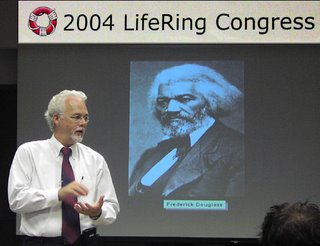"Moving forward to address nicotine addiction within the larger rubric of addiction treatment is no longer a question of inadequate research; it is a question of honesty, courage and leadership.
 "Every day, addictions professionals who have been addicted to nicotine are shedding that addiction and embracing a personal manifesto containing one or more of the following propositions:
"Every day, addictions professionals who have been addicted to nicotine are shedding that addiction and embracing a personal manifesto containing one or more of the following propositions:I choose to:
- Forever sever my personal relationship with nicotine; it no longer has a place in my life.
- Help hasten the end of the addiction field’s enabling of tobacco addiction among our clients and our workers.
- Model responsible decision-making regarding all psychoactive drugs and encourage my clients and peers to do the same.
- Offer assistance to those seeking to recover from nicotine addiction.
- Contribute money to or accept money from a predatory industry that has consciously sacrificed the health of the public for corporate profit.
- Model a behavior (smoking) that could take years from my own life and the lives of those who could be influenced by my example.
- Remain silent about the tobacco industry’s targeted marketing to women, children, communities of color, and citizens of developing countries.
- Live the hypocrisy of being addicted while working as an addictions professional."
No comments:
Post a Comment